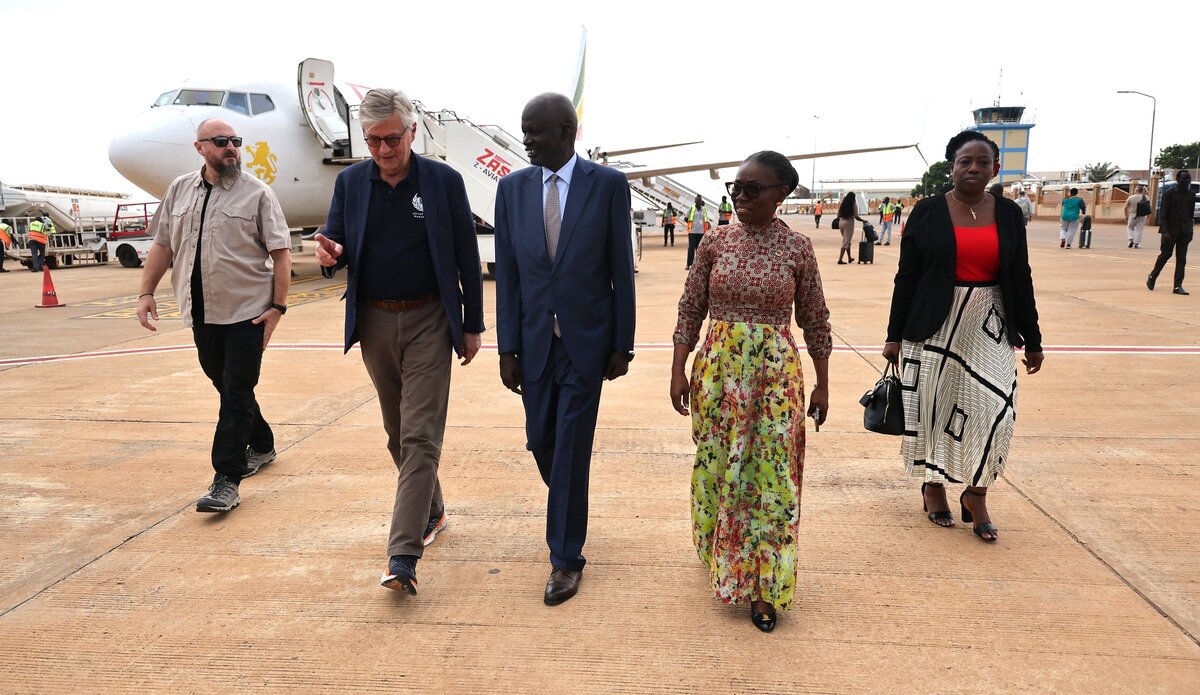- Details
- East Africa
- 351
Touching down in Juba, the Under-Secretary-General for United Nations Peace Operations, Jean-Pierre Lacroix, is on a whirlwind visit to conflict-affected South Sudan to urge progress in the peace process and to strengthen understanding of the impact of the UN-wide financial crisis on peacekeeping missions.
Immediately on arrival, Mr. Lacroix headed into a series of meetings with the country’s political leaders, briefing them on the impact of the financial crisis, caused by delays and shortfalls in cash contributions to peacekeeping by Member States, on the UN peacekeeping mission in South Sudan (UNMISS).
“South Sudan is a fragile country. It is a country that is impacted massively by the conflict in neighbouring Sudan, by climate change, and the drastic reduction of humanitarian assistance,” said Mr. Lacroix.
“The country is really at a crossroads. There is a need for international support, but we need to work together to make progress on the political front and to make the best possible case, so that Member States will be convinced that it is in the collective interests of the South Sudanese people, the region, and global security, to continue providing assistance.”
In response to the fiscal crisis, UNMISS is required to reduce its spending by 15% which means downsizing its presence and reducing activities across the country.
“UNMISS has a very important mandate and has been with us since we earned our peace under the Comprehensive Peace Agreement and it has impacted many institutions, including the security sector and law sectors,” said the Minister of Cabinet Affairs, Martin Lomuro.
“We will wait for the plan that UNMISS will come up with and we will have a high-level team that will discuss and make an input into the plan so that the process is smooth with no negative impact.”
“I’m very confident that despite all the challenges we are facing, we will be able to overcome them through the strong coordination and cooperation with the authorities of South Sudan,” responded Mr. Lacroix.
The cost-saving measures come at a time when the political, security and humanitarian situation is rapidly deteriorating. Political tensions and violence between forces aligned with the main parties to the peace deal are rising. Intercommunal conflict continues to have a catastrophic impact and almost eight million people are facing crisis-level food insecurity.
Despite the challenges, the United Nations is committed to staying and delivering for the people of South Sudan.
“We are committed to keeping working with those we serve to support and protect them,” said Mr. Lacroix.
“At the same time, there will be a negative impact because we are forced to implement the savings. We will try to minimize this impact, but we also need the advocacy of the civil society in South Sudan to support continued delivery of adequate resources to UNMISS and humanitarian partners.”
To find shared solutions to the challenges ahead and ensure a smooth downsizing process, the mission will continue engaging intensively with all partners, including the Government of South Sudan and affected communities, to de-escalate tensions, end political violence, and build a better future for the world’s newest nation. UNMISS






